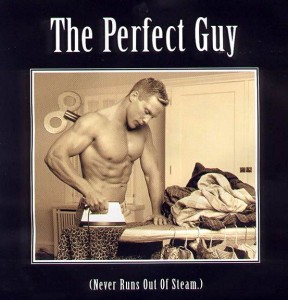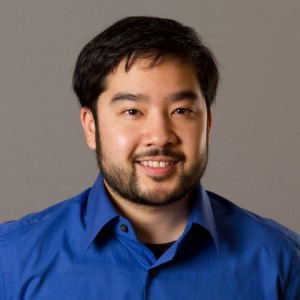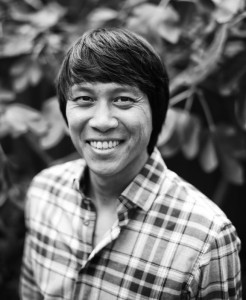 Sapna Cheryan and Zach Katagiri, two of our Anthology authors, recently published an article in Social Psychology about the ways that people cope when they feel that a core part of their identity has been threatened. The article focuses on masculinity (What happens when you tell a man that he is not “manly”?) and has been generating some interesting media buzz, subsequently getting coverage at an assortment of notable news organizations including Salon, UK Daily Mail, and MTV.com.
Sapna Cheryan and Zach Katagiri, two of our Anthology authors, recently published an article in Social Psychology about the ways that people cope when they feel that a core part of their identity has been threatened. The article focuses on masculinity (What happens when you tell a man that he is not “manly”?) and has been generating some interesting media buzz, subsequently getting coverage at an assortment of notable news organizations including Salon, UK Daily Mail, and MTV.com.
Their study was inspired, in part, by earlier work that looked at the ways that Asian Americans would assert their American identities in situations where they were subtextually sent back to Asia (i.e. “Where are you from?… Yeah, yeah, but where are you really from?”). The authors were hoping to support that work while taking a look at another example of identity threat/assertion as a way of opening up dialogue about the social norms and expectations that we perpetuate, often without even thinking about it, and the implications such things can have in both humorous (men who are told they are weak report being taller than they are and having had more sexual partners) and very serious ways (men with baby faces tend to have more aggressive tendencies and commit more crimes).
A complete list of coverage for the story:
- “Manning Up.” Social Psychology, 46(4), pp. 218–227
- Salon, June 24, 2015, Men Overcompensate in Gross Ways When Their Masculinity is Threatened
- MTV.com, June 25, 2015, Here’s Why Guys Exaggerate How Tall They Really Are
- UK Daily Mail, June 23, 2015, Are you man enough? Men lie about their height and number of sexual partners if they feel their masculinity is being questioned
- UW Today (University of Washington), June 22, 2015, Men May Overcompensate When their Masculinity is Threatened
- Raw Story (Pandagon blog), June 24, 2015, Male overcompensation is toxic even when it’s not violent
- Medical Daily, June 23, 2015, Man Up, Bro: Men Tend To Overcompensate When Their Masculinity Is Threatened
- The Stranger, June 23, 2015, UW Psychology Experiment Finds That Guys Exaggerate Their Height When They Feel Their Masculinity Is Threatened
- International Business Times, June 23, 2015, Men who fall short of masculine ideals overcompensate with gender stereotypes
 Sapna Cheryan is an assistant professor of psychology at the University of Washington. Her research interests include identity, stereotypes, and prejudice, and she has published articles on stereotype threat and strategies of belonging to social groups in journals such as the Journal of Personality & Social Psychology and Psychological Science. Her awards include the National Science Foundation CAREER Award and the American Psychological Association Dissertation Research Award. She received her Ph.D. in social psychology from Stanford University in 2007.
Sapna Cheryan is an assistant professor of psychology at the University of Washington. Her research interests include identity, stereotypes, and prejudice, and she has published articles on stereotype threat and strategies of belonging to social groups in journals such as the Journal of Personality & Social Psychology and Psychological Science. Her awards include the National Science Foundation CAREER Award and the American Psychological Association Dissertation Research Award. She received her Ph.D. in social psychology from Stanford University in 2007.
 Zach Katagiri was born in Hawaii, grew up in Oregon, studied in California and Kyoto, Japan, and now lives in New York. He has been working in digital media for the past 15 years, doing audio and video production, graphic design, and web design and development (http://www.zachkatagiri.com). His primary gig is as the US Business Director at CMNTY (pronounced “Community”), managing digital marketing efforts, helping to support clients, and establishing their New York City office. He and his wife live on the Upper West Side of Manhattan and love to cook/eat/drink, play/watch basketball, and take advantage of a city that has something different to do every day.
Zach Katagiri was born in Hawaii, grew up in Oregon, studied in California and Kyoto, Japan, and now lives in New York. He has been working in digital media for the past 15 years, doing audio and video production, graphic design, and web design and development (http://www.zachkatagiri.com). His primary gig is as the US Business Director at CMNTY (pronounced “Community”), managing digital marketing efforts, helping to support clients, and establishing their New York City office. He and his wife live on the Upper West Side of Manhattan and love to cook/eat/drink, play/watch basketball, and take advantage of a city that has something different to do every day.


